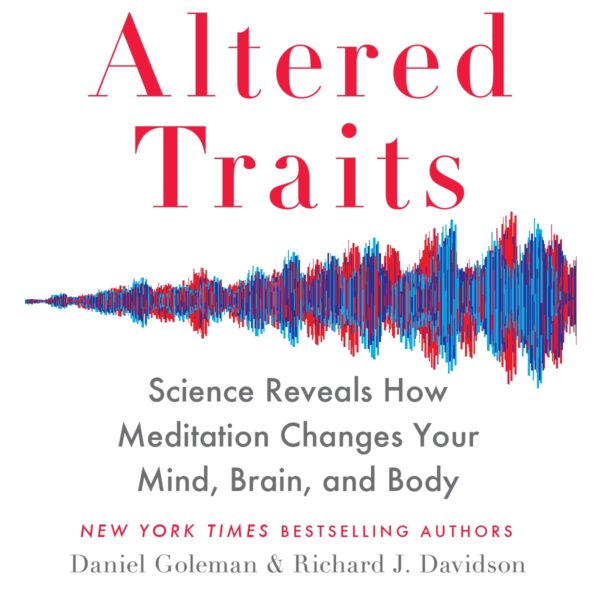Center for Healthy Minds Founder and Director Richard Davidson is determined to share how meditation can be helpful as well as where it falls short. In his new book, “Altered Traits: Science Reveals How Meditation Changes Your Mind, Brain and Body” authored with longtime friend and emotional intelligence expert Daniel Goleman, Davidson brings these issues to light and shares how decades of research at the Center for Healthy Minds has contributed to our understanding of meditation, and more importantly, our well-being and flourishing.
There’s been a lot of focus on the kinds of “states” a person may experience while meditating. What does your focus on “altered traits” mean?
When we talk about traits, we’re implying qualities that endure. And when we think about meditation, or for that matter other kinds of interventions, we’re really interested in the impact of the intervention on a person’s quality of experience and whether that effect lasts. If meditation were to simply give you a buzz — like a drug – you’d have the same effect as a drug and your experience will wear off and return to baseline.
If this is also true of meditation, then what would be the point? We’re finding that this is not the case, and there’s more to it than a singular experience for people who meditate regularly. The central focus of these practices is to alter traits, and it’s a fundamental reason why they evolved in the first place.
So far, the scientific literature, including our earlier work, has focused more on states than traits. This is because it’s an easier and not unreasonable place to begin. Yet, traits are really coming to the forefront as being more important.
One of key things we do in this book is to look dispassionately at the state of evidence. Is there evidence to suggest that different meditations can lead to changes that endure? One conclusion is that there is some evidence that meditation leads to changes in traits, but that ongoing practice is required and is an important attribute. We’re finding that changes in traits go hand-in-hand with new habits so the practices are consistent over time.








